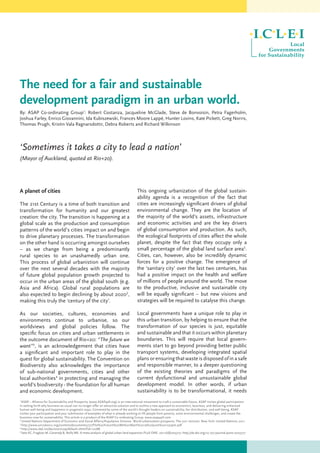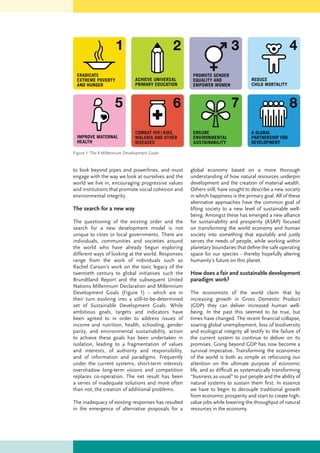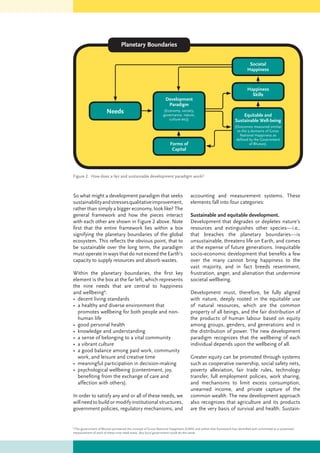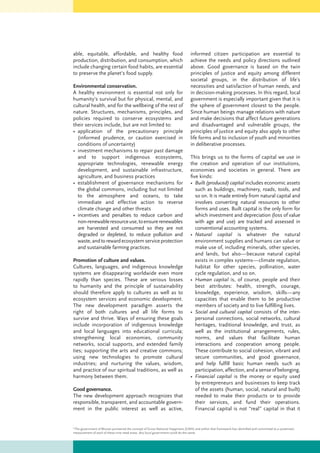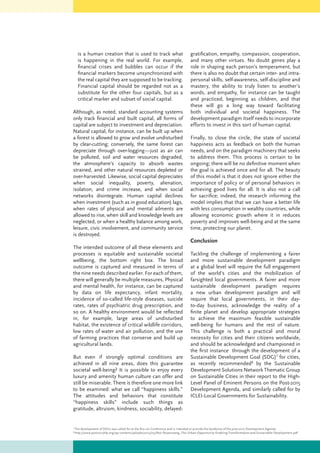1. The document discusses the need for a new paradigm of fair and sustainable development as societies continue to urbanize and the majority of the world's population lives in cities.
2. It proposes a framework where development occurs within planetary boundaries and aims to satisfy nine central needs of happiness and well-being: decent living standards, health, knowledge, community, culture, work-life balance, participation and psychological well-being.
3. Key elements of the proposed paradigm include sustainable and equitable development, environmental conservation, cultural promotion, good governance, and investment in natural, human, social, built, and financial capital. The intended outcome is equitable and sustainable societal well-being.
